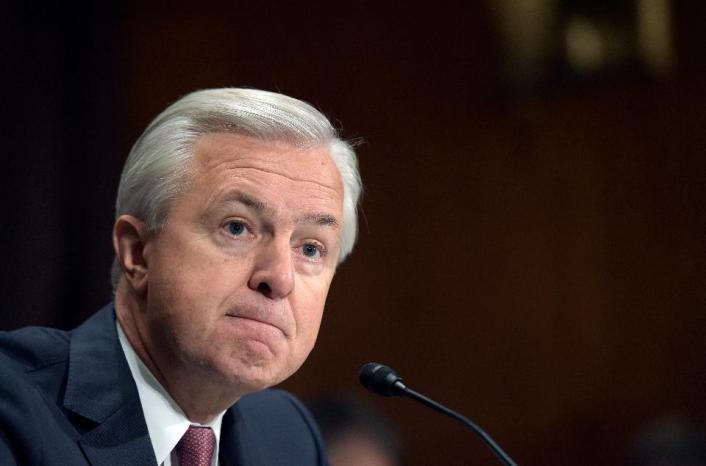Wells Fargo Management Turned a Blind Eye to the Creation of Fake Accounts
With Sales Abuses Dating Back To 2002, Wells Fargo Board Claws Back $75 Million More From Executives Responsible
In an attempt to atone for having created millions of bank and credit card accounts without customer permission or knowledge, Wells Fargo installed a new chief executive, reformed its sales incentives and clawed back more than $60 million in stock awards from the executives deemed responsible. And it’s not stopping there. On Monday, following the publication of an internal investigation that found the improper sales practices date back to at least 2002, Wells announced that it is increasing those clawbacks by $75 million and retroactively firing Carrie Tolstedt, the former head of the unit in charge of the unauthorized sales.
For the past six months, Wells Fargo’s independent directors and law firm Shearman & Sterling have taken a microscope to the bank, interviewing 100 managers, searching through 35 million documents and reviewing information from more than 1,000 investigations of lower-level employees fired for “sales integrity violations.” Their finding: the ultimate cause of the scandal was a combination of a “culture distortion,” aggressive sales management, and a decentralized corporate structure that gave too much power to executives who should have been willing and able to change the “eight is great,” sales-at-all-costs mindset.
“While there is nothing necessarily pernicious about sales goals, a sales-oriented culture or a decentralized corporate structure, these same cultural and structural characteristics unfortunately coalesced and failed dramatically here,” the report says in one of its more generous lines.
Later on, it’s more blunt — especially when referring to the Community Bank segment, the division responsible for banking products and their sales.
“Aided by a culture of strong deference to management of the lines of business (embodied in the oft-repeated ‘run it like you own it’ mantra), the Community Bank’s senior leaders distorted the sales model and performance management system, fostering an atmosphere that prompted low quality sales and improper and unethical behavior,” the report said. “The Community Bank identified itself as a sales organization, like department or retail stores, rather than a service-oriented financial institution.”
The 113-page report provides painstaking detail about the environment that led to the creation of millions of unauthorized accounts. There’s an anecdote about a 2003 program called “Jump into January,” which pressured employees to start the year with higher sales results. According to witnesses interviewed in the internal investigation, “bankers were encouraged to make prospect lists of friends and family members who were potential Jump into January sales targets, and often would temporarily withhold December account openings until January in order to meet sales targets and incentives.”
Regional sales managers apparently expressed concern about the pressure created by Jump into January, but “the Community Bank was hesitant to end the program because Tolstedt was ‘scared to death’ that it could hurt sales figures for the entire year,” the report says.
As the former head of the Community Bank, Tolstedt figures prominently in the internal investigation. She stands accused of being defensive and turning a deaf ear to negative information, and more gravely, of misleading Wells’ board about the extent of the sales practice problems. (The report does not include any comment from Tolstedt; it says that on the advice of counsel, she declined to be interviewed.)
Though Tolstedt left the bank in July of 2016, Wells said Monday that she is being retroactively fired for cause. She is also losing more money in stock awards: though the bank clawed back $19 million of unvested equity compensation last fall, it said Monday that it is clawing back an additional $47 million of Tolstedt’s outstanding stock options awards.
Of course, Tolstedt isn’t the only former Wells exec getting punished for her contributions to Wells’ breach of consumer trust. Former CEO John Stumpf, too, doesn’t come out looking saintly.
“Stumpf’s commitment to the sales culture also led him to minimize problems with it, even when plausibly brought to his attention,” the internal investigation says. “Stumpf was by nature an optimistic executive who refused to believe that the sales model was seriously impaired. His reaction invariably was that a few bad employees were causing issues, but that the overwhelming majority of employees were behaving properly. He was too late and too slow to call for inspection of or critical challenge to the basic business model.”
Among the more damning accusations: that Stumpf knew of specific sales practice issues as early as 2002. The internal investigation found that in the summer of that year, a branch in Colorado used a form of “gaming” in connection with a promotional campaign. “Although most within Wells Fargo recall this incident as involving improper teller referral credits, it also involved employees issuing debit cards without customer consent,” the report says.
Stumpf was notified of this incident, the report says, and he also “received numerous customer and employee complaints about sales practices and sales pressure, which he or his assistants referred to appropriate subordinates without further follow-up.”
Stumpf agreed to the clawback of $41 million in unvested equity awards in September, and in October he resigned from his role as CEO and chairman. On Monday, Wells said that it is forcing Stumpf to forfeit $28 million of incentive compensation paid in March 2016 from an equity grant made in 2013.
Wells said these and other compensation actions total more than $180 million — a sum that qualifies the clawbacks as among the largest in corporate history.
“We accept the board’s findings as a critical part of our journey to rebuild trust,” CEO Tim Sloan said in a statement Monday. “[T]he board’s comprehensive findings provide another important opportunity to learn from our mistakes and take action to improve the way we operate, serve customers, and lead our team members.”
https://www.forbes.com/sites/maggiemcgrath/2017/04/10/with-sales-abuses-dating-back-to-2002-wells-fargo-board-claws-back-75-million-more-from-executives-responsible/print/
Published by Forbes Magazine on 4/10/2017 @ 11:16AM



